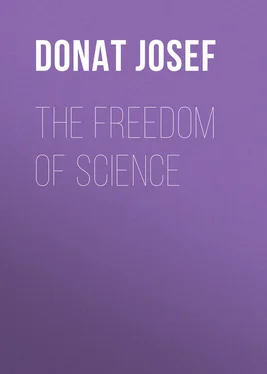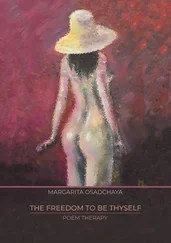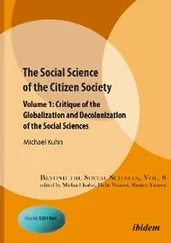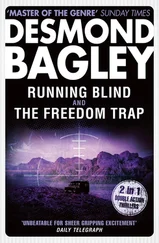Josef Donat - The Freedom of Science
Здесь есть возможность читать онлайн «Josef Donat - The Freedom of Science» — ознакомительный отрывок электронной книги совершенно бесплатно, а после прочтения отрывка купить полную версию. В некоторых случаях можно слушать аудио, скачать через торрент в формате fb2 и присутствует краткое содержание. Жанр: foreign_antique, foreign_prose, на английском языке. Описание произведения, (предисловие) а так же отзывы посетителей доступны на портале библиотеки ЛибКат.
- Название:The Freedom of Science
- Автор:
- Жанр:
- Год:неизвестен
- ISBN:нет данных
- Рейтинг книги:4 / 5. Голосов: 1
-
Избранное:Добавить в избранное
- Отзывы:
-
Ваша оценка:
- 80
- 1
- 2
- 3
- 4
- 5
The Freedom of Science: краткое содержание, описание и аннотация
Предлагаем к чтению аннотацию, описание, краткое содержание или предисловие (зависит от того, что написал сам автор книги «The Freedom of Science»). Если вы не нашли необходимую информацию о книге — напишите в комментариях, мы постараемся отыскать её.
The Freedom of Science — читать онлайн ознакомительный отрывок
Ниже представлен текст книги, разбитый по страницам. Система сохранения места последней прочитанной страницы, позволяет с удобством читать онлайн бесплатно книгу «The Freedom of Science», без необходимости каждый раз заново искать на чём Вы остановились. Поставьте закладку, и сможете в любой момент перейти на страницу, на которой закончили чтение.
Интервал:
Закладка:
But for the present let us pass over the natural authority of mankind, of its convictions and traditions. It is surpassed and replaced by the authority of faith which belongs to our Christian religion . The latter comes to us claiming to possess the only true view of the world, and laying upon us the obligation of accepting it. It has even the courage to put its anathema upon propositions which the scientist may call science; it dares write out a list of the propositions which it condemns as untenable. Against this authority the protest is raised: Where is freedom of research, if one cannot even indulge in his own ideas, if the intellect is to be cropped and fettered? What is to become of frank, unprejudiced investigation, if I am from the outset bound to certain propositions, if from the outset the result at which I must arrive is already determined? It is intellectual bondage that the man of faith is languishing in. Thus reads the indictment; thus sounds the battle-cry. Is the indictment justified? Can and shall science take faith as a guide in many instances without detriment to its own innate freedom? And where, and when?
First, the more general question: Is freedom of research compatible with the duty to believe, or do they exclude each other in principle?
What Faith is Not
What, then, is faith, and what does the duty to believe demand of us?
Here we meet at once with a false proposition which the opponents of the Christian faith will not abandon. To them faith is always a blind assent, in giving which one does not ask, nor dare ask, whether the proposition be true — a belief without personal conviction . According to them the believer holds himself “captive to the teaching of his Church. He cannot reflect personally, but follows blindly the lead of authority and force of habit.” Thus “Catholicism is the religion of bondage” ( W. Wundt , Ethik, 3d ed., 1903, II, 255, 254). To them it is but an “uncritical submission to the existing authority, uninfluenced either by the testimony of the senses or the reflection of the intellect” ( K. Menger , Neue Freie Presse, 24 Nov., 1907). The campaign for liberal science is denouncing those who “even to-day dare to demand blind faith,” “without proof or criticism,” faith in the “word of the Popes and men pretending to be interpreters and emissaries of God, men who have proved their incompetence and inability by the physical and religious coercion to which they have subjected mankind” ( T. G. Masaryk , V boji o nábozenstvi, The Battle for Religion, 1904, p. 10, 23).
To be sure, if the Christian faith were such, it would be intellectual slavery. If I am compelled to believe something of which I cannot know the truth, this is coercion, and conflicts with the nature of the intellect and its right to truth. Infidelity would then be liberation. But faith is not that.
As a rule this view is based on a presumption, which has already been extensively discussed, viz., that faith and religion have nothing at all to do with intellectual activity, but are merely the product of the heart , a sentimental, freely acting notion; for, of metaphysical objects no human intellect can form a certain conviction. It is subjectivism that leads to this view. According to it the subject creates its own world of thought, free in action and feeling, not indeed everywhere, – in the sphere of sense-experience the evidence of the concrete is too great, – but at least in the sphere of metaphysical truth.
Such modes of expression find their way also into Catholic literature and language; even here we meet with the assertion that religion is a matter of the heart, and for that very reason has nothing to do with science. On the whole it is a remarkable fact that among believing men many expressions are current that have been coined in the mint of modern philosophy, and have there received a special significance. They are used without real knowledge of their origin and purposed meaning; but the words do not fail to colour their ideas, and to create imperceptibly a strange train of thought.
One who is of the opinion that religion and views of the world are but sentiment and feeling, which change with one's personality and individuality, can, of course, no longer understand a dogmatic Christianity and the obligation to hold fast to clearly defined dogmas as unchangeable truth. I can hold dogmas and doctrinal decisions to be unquestionably true only when I can convince myself of their credibility by the judgment of my reason. If I cannot do that, and am still bound to believe them, without the least doubt, then such obedience is compulsory repression of the reason. Then it would indeed be necessary for the Church, as Kant says, “to instil into its flock a pious dread of the least deviation from certain articles of faith based on history, and a dread of all investigation, to such a degree that they dare not let a doubt rise, even in thought, against the articles proposed for their belief, because this would be tantamount to lending an ear to the evil spirit” (Religion innerhalb der Grenzen der blossen Vernunft, 3. Stueck, 2. Abtlg.). Fixed dogmas may then at the very most, according to the great master of modern thought, be of pedagogic value to a minor, until he be grown to maturity. But to more advanced minds must be unconditionally conceded the freedom to construct dogmas as they think best, viz., as symbols and images for the subjective thought they underlie. This also, as is well known, is an article of Modernism, which here again follows in the steps of Kant .
“Ecclesiastical faith,” says Kant , “may be useful as a vehicle to minors who can grasp a purely rational religion only through symbols, until in the course of time, owing to the general enlightenment, they can with the consent of everybody exchange the form of degrading means of coercion for an ecclesiastical form suitable to the dignity of a moral religion – that of free faith.” “The membranes,” he says in another place, “in which the embryo first shaped itself into man must be cast off, if he is to see the light of day. The apron-strings of sacred tradition with its appendages, viz., the statutes and observances which at one time did good service, can gradually be dispensed with; they may even become a harmful hindrance when one is growing to manhood.”
Of course, to him who takes the position of Kant's dualism of belief and rational judgment , freedom from every authority in matters of faith, and in this sense tolerance, will appear to be self-evident. Whatever has nothing to do with knowledge, but is merely the personal result of an inner, subjective experience, cannot be offered by external authority as matter for instruction. The sole standard for this belief is the autonomous subject and its own needs. In this sense Harnack tells us: “The kernel of one's being is to be grasped in its own depths and the soul is merely to recognize its own needs and the road traced out for their gratification. This can only be done with the fullest freedom. Any restraint here is tantamount to the destruction of the problem; any submission to the teaching of others … is treason to one's own religion” (Religioeser Glaube und freie Forschung. Neue Freie Presse, 7. Juni, 1908). To have one's religion determined by any authority, even a divine one, would be treason to the sovereignty of man!
Viewed from this standpoint, the reconciliation between faith and science is no longer a problem. And they congratulate themselves on the solution of this vexing question. Now, they say, deliverance from an oppressive misery has been found, now the peace sought for so long is restored. A fair division has been made: two worlds, the world of the senses, and the world above sense experience. One belongs to science, where it now rules supreme; the other belongs to faith, where it can move freely, undisturbed by, and even unapproachable to science. Just as the stars in the sky are inaccessible to the custodian of civil order, – he can neither support them nor hinder them, nor pull them down, – just so the realm of faith is inaccessible to science: peace reigns everywhere.
Читать дальшеИнтервал:
Закладка:
Похожие книги на «The Freedom of Science»
Представляем Вашему вниманию похожие книги на «The Freedom of Science» списком для выбора. Мы отобрали схожую по названию и смыслу литературу в надежде предоставить читателям больше вариантов отыскать новые, интересные, ещё непрочитанные произведения.
Обсуждение, отзывы о книге «The Freedom of Science» и просто собственные мнения читателей. Оставьте ваши комментарии, напишите, что Вы думаете о произведении, его смысле или главных героях. Укажите что конкретно понравилось, а что нет, и почему Вы так считаете.












